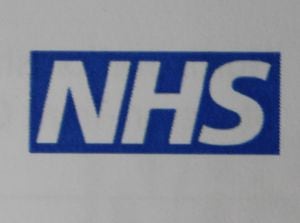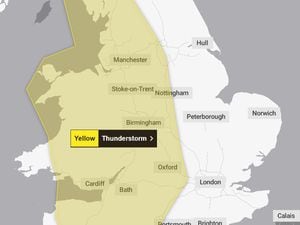Routine care in Staffordshire may be delayed to help with the roll-out of Covid-19 booster jab
A health boss has warned routine care may be delayed until the new year so that 359,000 people in Staffordshire can get their Covid booster jab.

Prime Minister Boris Johnson has announced that the vaccination programme is being ramped up in response to the spread of the new Omicron variant of Covid-19.
From this week all over-18s are being offered a booster jab if their second dose was more than three months ago and vaccination centres offering walk-ins have already seen lengthy queues, while online booking services have experienced a surge in demand.
On Monday Staffordshire County Council members were told how the latest campaign was set to affect services at GP surgeries already dealing with high demand.
Lynn Millar, director of primary care and medicines optimisation for the area’s six Clinical Commissioning Groups (CCGs), told Staffordshire County Council’s Health and Care Overview and Scrutiny Committee: “We have got three weeks to boost all over-18s, but also continue with that evergreen offer to make sure people can access their first and second doses.
“We have got to do an additional 21,000 vaccines a day to be able to deliver the target of 126,000 vaccines a week.
“Clearly this is going to be a huge challenge. The vast majority – 60 or 70% of the vaccination programme – is delivered in primary care, mostly through GPs and PCNs (primary care networks), but also community pharmacists.
“We’ve stepped down for this period a number of enhanced services that practices deliver. You might have heard nationally they’ve given instruction to stand down the QOF – the Quality and Outcomes Framework – to pause and defer any new over 75 health checks and to stand down the improvement programme for PCNs, which is largely around surveys. There is a lot of administrative burden we can take away.
“This message has been very loud and clear. The vaccination programme, after emergency surgery, is the most important piece of work for the NHS to be focusing on in the next three weeks. We have to prioritise vaccinations.
“This may mean that some people’s routine care may be deferred into the new year. We will catch up, we will continue with our long-term conditions reviews and we will pick work up once we have got through the body of vaccinations.
“But the very clear message is, if we don’t vaccinate and don’t boost the remaining population, we are going to be storing up a problem in January.
“Patients will still be able to get emergency appointments with their GP. We will still be screening patients and prioritising cancer, but it may be that some more routine work may be pushed into the new year.”
Committee chairman Councillor Jeremy Pert asked if the area had the supply of vaccines and workforce to meet the booster target.
Ms Millar replied: “We have 90,000 vaccines in stock this week. The expectation is vaccine availability won’t be a problem. We’ve got double vaccine deliveries coming from December 14 onwards, so I’m confident the vaccine is available.
“We’ve already got a very tired, worn-out workforce if I’m absolutely honest. GPs know this is the right thing to do and if we don’t vaccinate we are going to have a lot of poorly people after Christmas potentially, so it is in their own interest we do this piece of work.
"As of Monday morning, we had 75 per cent of our population boosted, so we’ve got a remaining 359,000 people who need a booster.”
Councillor Charlotte Atkins said: “Even in Leek I can see great variation in the delivery by different GP practices and my concern is the worst will become the norm, rather than the best. How are you going to make sure that those GP practices that don’t perform as well as others are monitored and ensure they do not fail their patients?
“It may well be that you’re suspending the QOF for three weeks during the national emergency to get the vaccinations done, but I’m more interested in the long-term issues around QOF, because the BMA (British Medical Association) have been lobbying for a very long time to take that function out of GP surgeries.
“We know that GPs tend to respond to financial incentives and if they don’t have to abide by the QOF guidelines my concern is that those vulnerable patients who are, under the guidelines, supposed to have regular assessments and check-ups by GPs will go by the wayside.
“I’m talking about January onwards and I’m concerned those people will go unmonitored. However well-intentioned GPs are, we all know from the statistics that the demand has increased.
“What safeguards are you putting in place to ensure that GPs don’t forget about those patients?"
Ms Millar responded: “There are elements that are being maintained. Continuing with immunisation and cancer screening is an absolute priority.
“It’s down to a clinical decision and it’s a tiered step down, it’s not completely paused. Those patients who are clinically at most risk will continue to receive their reviews and patients will still be able to see their GP if they need to.
“In terms of the mitigations we’re putting in place, I think there is a bigger issue here that this is not about a three-week pause. This has been 18 months during a pandemic where people have not been getting their routine care.
“We’re doing a full data review to understand if there has been an impact on outcomes over the last two-year period. Once we’ve done that we’re looking to put in a QOF recovery plan.
“We’ve only got two practices in the whole of Staffordshire that are inadequate or require improvement at the moment, so the majority are good or outstanding.”





